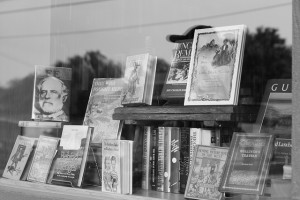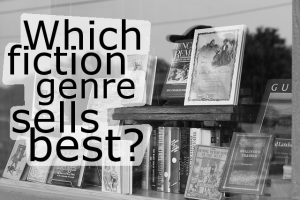Copywriting (my day job) will never be as rewarding as fiction writing, but they share some similarities in craft. For example, the headline.
“Headline” doesn’t just refer to the large type on the front of a newspaper; it can mean the main line of text on any ad, billboard, webpage, or whatever. I probably spend more time writing headlines than anything else, mainly because they’re difficult. I can easily write a paragraph in fifteen minutes, but I might take hours to find the right headline for one ad. Why?
Lacking a striking image, the headline is the most important part of the ad. It must capture the attention of the audience and compel them to read the rest of the ad. It’s not enough to be well-written. Good writing by itself is not compelling. The same applies to the first sentence of your book.*
The first sentence of your book is the make-or-break moment for many readers, when they choose to keep reading, or to put it down forever.
So, a few pointers:
- If you haven’t spent more time on your first sentence than on any other sentence in your book, you’re doing it wrong.
- Scenic description, no matter how poetic, isn’t compelling.
- Fight or chase scenes, no matter how action-packed, aren’t compelling if you don’t know anything about the characters involved.
- What is compelling? It’s hard to put a finger on it, but it is usually weird, surprising, insightful, contradictory, or witty.
Examples!
In the fading afternoon light, the helicopter skimmed low along the coast, following the line where the dense jungle met the beach.
–The Lost World, Michael Crichton
She seemed to float above the ghostly evening mist like a menacing beast rising from the primeval ooze.
–Sahara, Clive Cussler
Eragon knelt in a bed of trampled reed grass and scanned the tracks with a practiced eye.
–Eragon, Christopher Paolini
There was no possibility of taking a walk that day.
–Jane Eyre, Charlotte Bronte
Those all sound quite nice. But compare them to the following:
It was a bright cold day in April, and the clocks were striking thirteen.
–Nineteen Eighty-Four, George Orwell
All my life, I’ve wanted to go to Earth.
–Podkayne of Mars, Robert A. Heinlein
The past is a foreign country; they do things differently there.
–The Go Between, L.P. Hartley
This is my favorite book in all the world, though I have never read it.
-William Goldman on The Princess Bride, by S. Morgenstern.
There was a boy named Eustace Clarence Scrubb, and he almost deserved it.
–The Voyage of the Dawn Treader, C.S. Lewis
Which ones make you want to keep reading? How does your first sentence measure up?
—
*I call the first sentence in a book the second most important sentence because in keeping with the philosophy that we owe our readers satisfactory closure, the last sentence of the book is actually the most important. But I digress.




